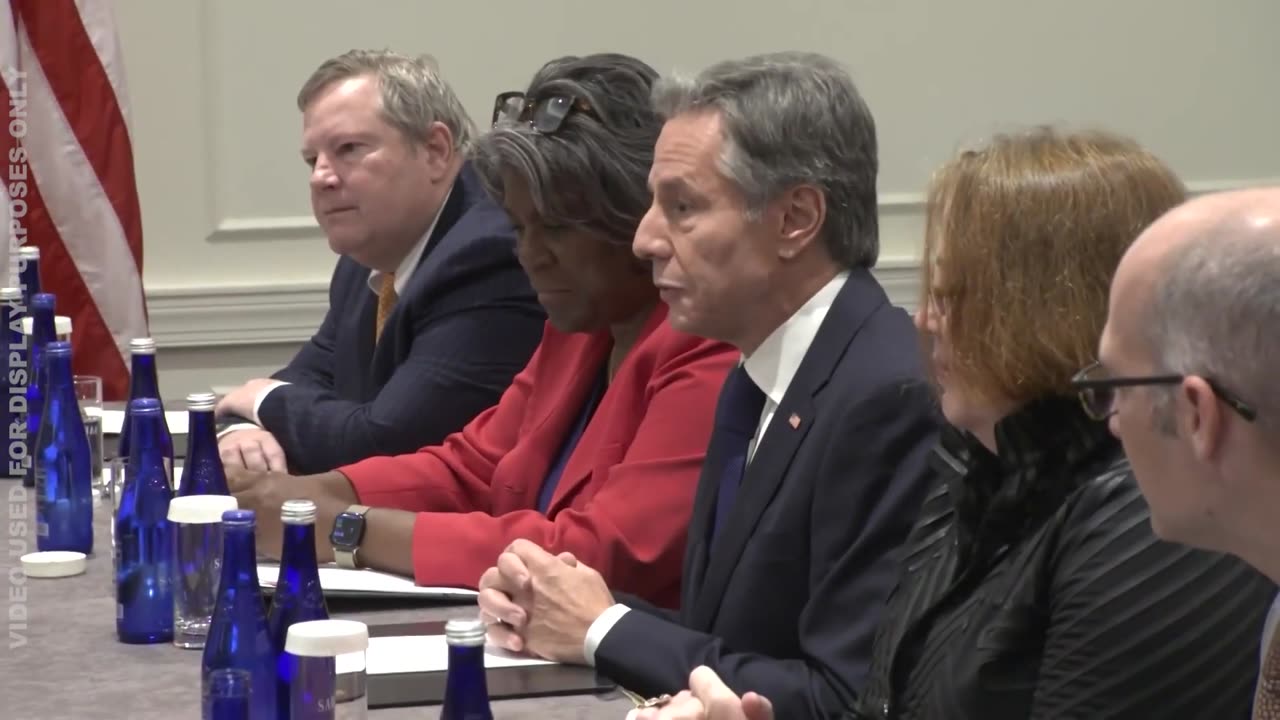Premium Only Content

Four Arab Leaders Unite Against Israel’s New Battle In Gaza, Deploy Military, This Is War!
Four Arab Leaders Unite Against Israel’s New Battle In Gaza, Deploy Military, This Is War!
Geopolitics TV
144K subscribers
Feb 16, 2024 #geopolitics #isreal #moslem
#geopolitics #isreal #moslem
The ongoing conflict between Israel and Palestine, particularly within the Gaza Strip, has had significant ramifications on the geopolitics of the Middle East. Throughout the region, there is a growing sentiment of frustration and condemnation directed towards Israel's actions. This sentiment is particularly strong within the Arab world, where there is a perception that Palestine has been abandoned by its Muslim brethren. Leaders of Muslim-majority nations, such as Saudi Arabia's Mohammed Bin Salman, Egypt's Abdel Fattah El-Sisi, Jordan's King Abdullah II bin Al-Hussein, and Bahrain's King Salman bin Hamad Al Khalifa, have come under scrutiny for their response to the situation. Many critics argue that these leaders have not taken sufficient action to support Palestine in its struggle against Israel's occupation. Mohammed Bin Salman, in particular, has faced criticism for his perceived silence on the issue. Despite Saudi Arabia's historical role in advocating for Palestinian rights, Bin Salman's approach has been characterized by some as lacking in vocal support for the Palestinian cause. This has raised questions about the kingdom's stance on the conflict and its commitment to the Palestinian people. Abdel Fattah El-Sisi, on the other hand, is known for his more nuanced approach to regional politics. As the president of Egypt, a country that shares a border with Gaza, El-Sisi has been involved in efforts to broker ceasefires and negotiations between Israel and Hamas. While he has been praised for his diplomatic efforts, some critics argue that more decisive action is needed to address the root causes of the conflict. Similarly, Jordan's King Abdullah II bin Al-Hussein has been caught in a delicate balancing act. With a significant Palestinian population and a history of conflict with Israel, Jordan has a vested interest in the resolution of the Israeli-Palestinian conflict. However, Abdullah's ability to influence the situation is constrained by Jordan's dependence on foreign aid and its reliance on regional stability for its own security. Meanwhile, Bahrain's King Salman bin Hamad Al Khalifa has been viewed as a prominent supporter of resistance movements in the region, particularly in Yemen. Despite this, his stance on the Israeli-Palestinian conflict has been less clear. While Bahrain normalized relations with Israel in 2020 as part of the Abraham Accords, Al Khalifa has faced criticism for prioritizing his country's interests over those of the Palestinian people.
-
 29:28
29:28
Afshin Rattansi's Going Underground
1 day agoMax Blumenthal on US’ Ukraine Aid Corruption, 'Psychotic' Israel Turning the West Bank into Gaza
8.8K -
 LIVE
LIVE
Sarah Westall
2 hours agoUnited States in a Two Front War, Identify Military Psyops and Special Operations w/ Jeffrey Prather
528 watching -
 LIVE
LIVE
Quite Frankly
5 hours ago"Open Phones: D.C. Crash, Senate Hearings, Petty Break-Ups" 1/31/25
1,160 watching -
 LIVE
LIVE
2 MIKES LIVE
5 hours ago2 MIKES LIVE #173 Open Mike Friday!
424 watching -
 LIVE
LIVE
LFA TV
8 hours agoDemocrats’ Greatest Fear Is Accountability | TRUMPET DAILY 1.31.25 7pm
617 watching -
 23:15
23:15
Bare Knuckle Fighting Championship
1 day agoBKFC FIGHT NIGHT MOHEGAN SUN FREE FIGHTS
15.6K2 -
 5:49:46
5:49:46
Bitfinex
8 hours agoBitfinex Talks Live at PlanB El Salvador - Day 2
20.2K1 -
 41:47
41:47
Candace Show Podcast
4 hours agoBecoming Brigitte: An Introduction
118K126 -
 1:27:41
1:27:41
vivafrei
6 hours agoBernie Gets DESTROYED! Confirmation Hearings RECAP! D.C. Aviation Disaster & MORE!
107K64 -
 13:16
13:16
ariellescarcella
5 hours agoThese TikTok 'Trans Women' Converting To Islam Are A Problem...
25.4K15